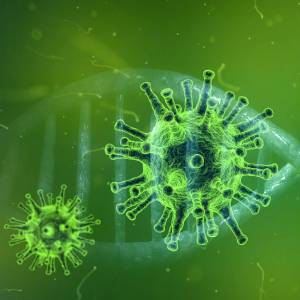Five myths about Covid-19

As the new coronavirus begins to spread around the world, the sharp increase in the number of cases combined with the prevalence of social media, have corresponded to a rise in the number of Covid-19 myths being perpetuated as people try to find a way to cope with the threat presented by this new and unknown disease.
Here are five popular myths about Covid-19 that have been debunked:
Covid-19 is deadlier than SARS and MERS
According to the World Health Organization (WHO), the new coronavirus, while dangerous, is not deadly on the same scale as the other two epidemics in recent history. In terms of the numbers alone, while it’s true that more people have been infected and died because of Covid-19, the fatality rate of the disease is actually much smaller in comparison. Fatality rates are calculated by dividing the number of deaths by the total number of people who are infected. A disease that has led to 1 death out of 100 infections, would thus have a fatality rate of 1%. In comparison to SARS with its fatality rate of around 10% and MERS with its fatality rate of about 35%, the 2,923 deaths and 85,162 infections of Covid-19 as of today indicates means that its fatality rate is only about 3%.
-
Spraying alcohol can prevent infection
As alcohol is commonly used as a disinfectant, some people are starting to wonder if rubbing themselves down with alcohol can help to kill the Covid-19 virus. While alcohol can help to kill bacteria when the virus has not yet entered the body, spraying alcohol over the skin will do nothing to kill the virus once it’s inside the body.
-
Animals are responsible for spreading Covid-19
Even though it is widely accepted that the Covid-19 virus had spread from animals to humans, most likely at a wildlife market in Wuhan, China, the exact origin of the disease has yet to be found. Some believe that bats are responsible as they have been found to carry multiple types of coronaviruses. However, bats are not usually trafficked at wildlife markets like the one in Wuhan. Some also believe that pangolins might have been responsible as a possible animal host for the virus, but it is usually only the scales of these endangered animals that are sold in wildlife markets and it may not be likely for the virus to have been transmitted from there. The desire to point the finger at a single responsible party is natural, but it’s important to remember that multiple factors play a role in the transmission of this disease, and the disease is mainly being transmitted from human to human right now.
-
Face masks can offer full protection from Covid-19
While wearing a face mask offers some protection, it is almost impossible to be fully protected as gaps around most masks still allow tiny particles to enter. The Covid-19 virus can be spread between people who are in close proximity to each other, and also through the respiratory droplets in the sneeze or cough of an infected person. Some people feel that wearing a mask helps them to remember not to touch their face or their mouth, as touching an infected surface followed by touching their eyes, nose or mouth, could lead to them contracting the disease. However, at present, no one knows exactly how long the Covid-19 virus can remain on the surface of an object and experts can only make estimated guesses based on other types of coronaviruses. According to the US Centers for Disease Control and Prevention, while it is possible for people to get Covid-19 by touching an infected surface and then their own face, this is not considered to be the main way in which the disease is spread. In order to avoid wasting resources, people who are perfectly healthy, as well as those who are not working in healthcare facilities or working in a caretaker capacity, are not encouraged to wear masks unlike those who exhibit Covid-19 symptoms.
-
People can contract Covid-19 from their pets
Reports of people in China killing their pets first arose in January this year, as the news spread that the spread of the virus was possibly being aided by these companion animals. However, to date, there has been no evidence of companion animals such as dogs or cats being infected with Covid-19. As the origin of the disease is linked to the wildlife trade, many took it a step further to assume that all animals are dangerous and could promote the spread of this new disease. To be on the safe side, people should continue to wash their hands with soap when they come into contact with live animals, as there are still other types of bacteria that can pass between animals and people.
13 Mar 2020Rayne
